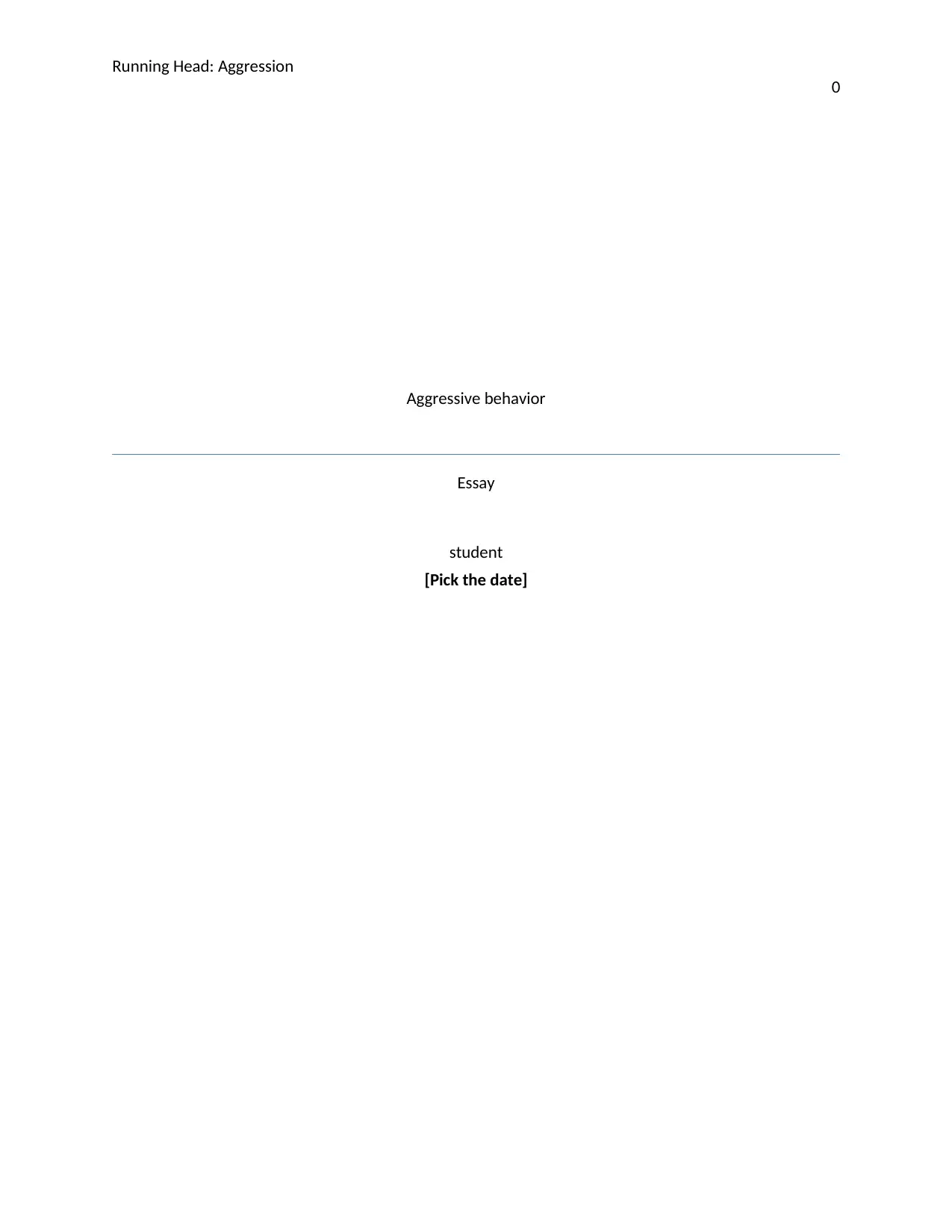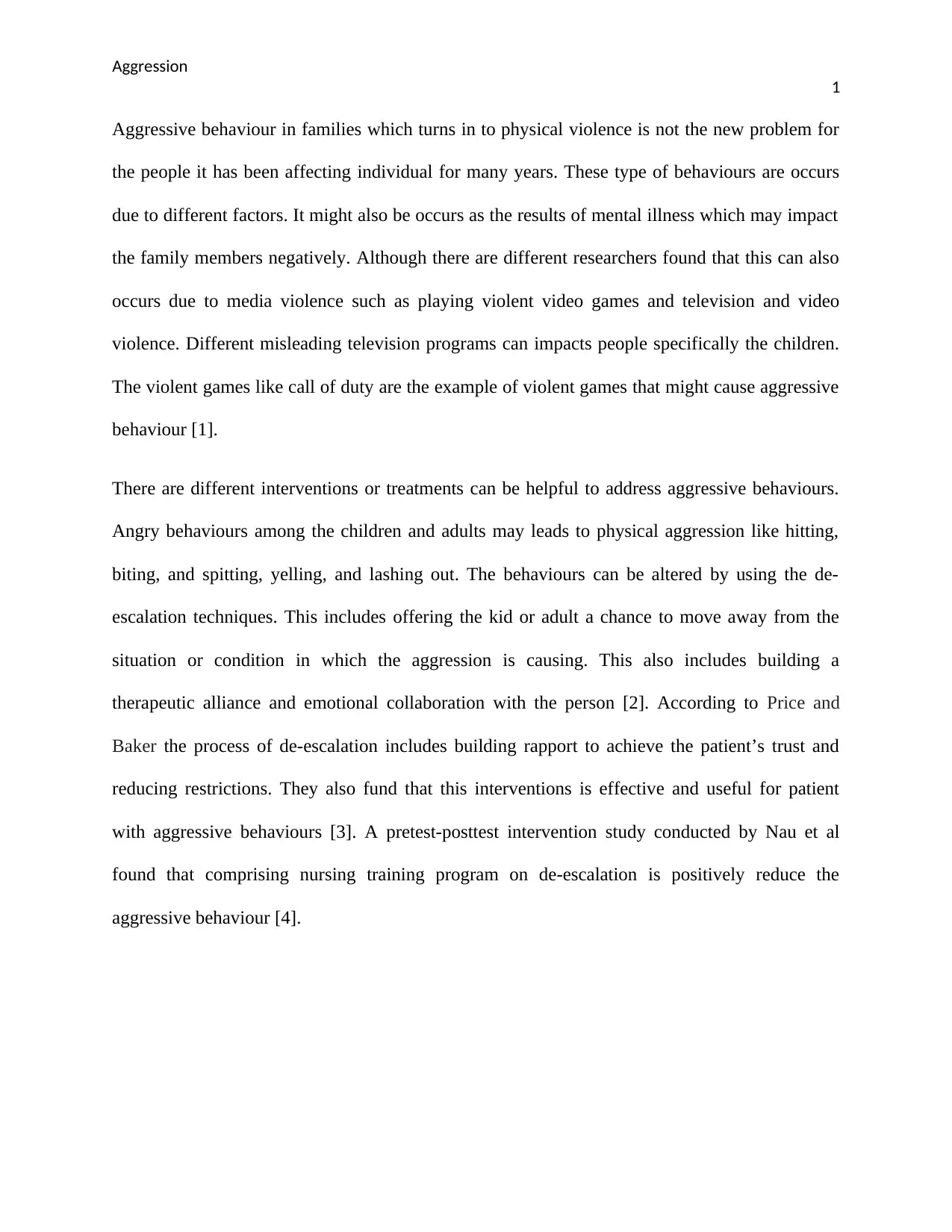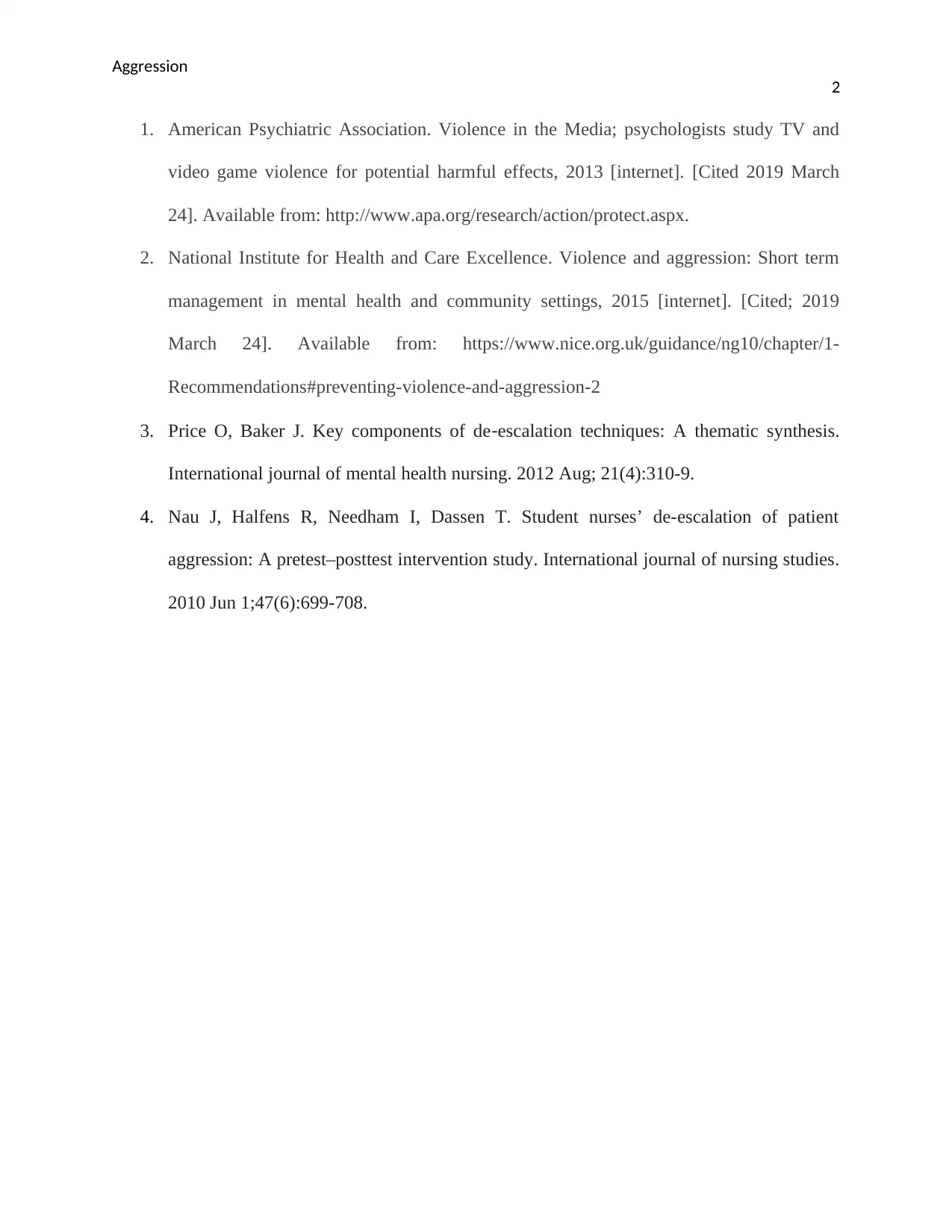University of Newcastle: MEDI6295 Essay on Aggressive Behaviour
VerifiedAdded on 2023/04/10
|3
|372
|398
Essay
AI Summary
This essay explores aggressive behavior, a prevalent issue affecting individuals for many years. It delves into various contributing factors, including mental illness, media violence (such as violent video games and television programs), and their impact on individuals, particularly children. The essay highlights the importance of interventions and treatments, focusing on de-escalation techniques as a means to address aggressive behaviors. It references studies that support the effectiveness of these techniques, including building rapport and emotional collaboration. Furthermore, the essay includes citations from the American Psychiatric Association and the National Institute for Health and Care Excellence, along with research by Price and Baker, and Nau et al., to support its claims.
1 out of 3





![[object Object]](/_next/static/media/star-bottom.7253800d.svg)